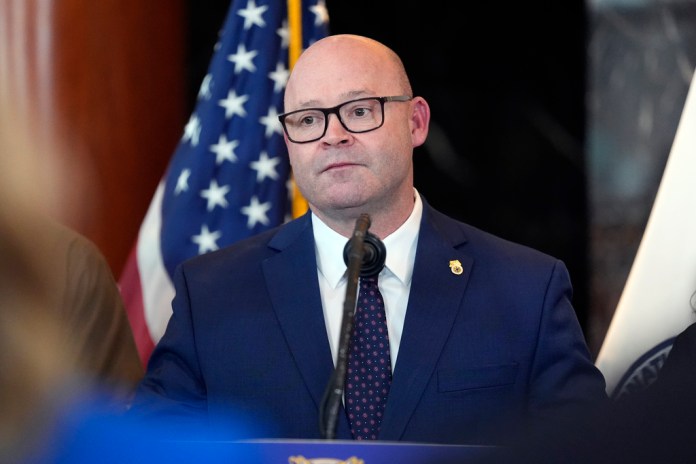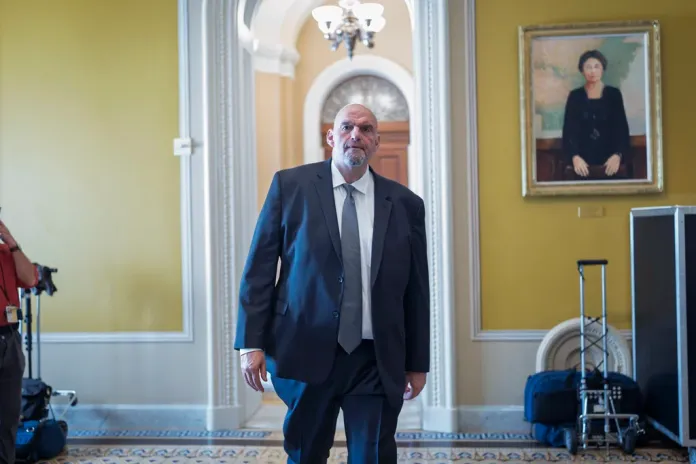As a result of labor shortages and increases in the minimum wage, there are more fast-food restaurants investing in automation
As labor shortages continue in the fast food industry, major chains such as White Castle and Chipotle are now employing robots to run their restaurants. The result is that the prices of food have risen. COVID This can cripple inflation.
According to a report, automated machines will grill burgers, brew coffee, and welcome customers for a fraction of the cost compared to paying human workers — as governments nationwide imposed draconian lockdown orders, forcing restaurants to close down temporarily and, in some cases, permanently.
According to the National Restaurant Association, in a report that was reviewed by The Daily Mail Four out of five operators are understaffed since 2020’s pandemic.
White Castle is said to have begun testing Flippy, an AI-powered kitchen robot made by Miso Robotics out of California. The machine, which is powered by AI, can cook 300 burgers or deep fry potatoes each month for around $3,000 per month. Chipotle, on the other hand hired one-armed robots for making tortilla chips at 73 locations.
“The highest value benefit that we bring to a restaurant is not to reduce their expenses, but to allow them to sell more and generate a profit,” CNBC interviewed Mike Bell, Miso CEO.
Starbucks spent $18,000 to purchase AI-powered espresso machines at least 1200 locations.
CNBC interviewed David Henkes from Technomic, a principal in restaurant research firm Technomic. He said that automation experimentation would be the future of the industry. “somewhere at some point.”
“But we’re still a very labor-intensive, labor-driven industry,” Henkes said.
Jamie Richardson from White Castle was vice president. He explained to the outlet how other changes such as Coca-Cola Freestyle Machines have had an even greater impact on sales.
“Sometimes the bigger automation investments we make aren’t as earth-shattering,” Richardson stated.
McDonald’s revealed a test restaurant last month that replaced positions formerly held by employees with automation technology near Fort Worth, Texas.
“The technology in this restaurant not only allows us to serve our customers in new, innovative ways, it gives our restaurant team the ability to concentrate more on order speed and accuracy, which makes the experience more enjoyable for everyone,” Keith Vanecek, a franchisee, stated in the blog post that he was the one who operated the test restaurant. reported CBS News.
Vanecek’s comment comes after McDonald’s CEO Chris Kempczinski dismissed in an earnings call last summer the idea of total automation any time soon.
“The idea of robots and all those things, while it maybe is great for garnering headlines, it’s not practical in the vast majority of restaurants,” He said. “The economics don’t pencil out. … You’re not going to see that as a broad-based solution any time soon.”
Casey Warman, an economics professor at Dalhousie University in Nova Scotia, told CNBC he expects automation to permanently shrink the restaurant industry’s workforce.
“Once the machines are in place, they’re not going to [sic] backwards, especially if there’s large cost savings,” He said.
Taco Bell and Popeyes have installed AI to take orders. Dominoes has begun testing robotic technology to add sauces, cheeses, and toppings onto its pizzas.
California has increased the minimum wage and automation is now possible in restaurants.
The Golden State increased its minimum hourly wage last year to $15 for employers with 26 or more employees and $14 for employers with 25 or fewer employees — the highest hourly wage in the nation. This increase is part of the law which raised the minimum wage from $10 an hour in 2017 to $15.50 per hour by 2023.
California Department of Industrial Relations stated in a news release That “after the state minimum wage reaches $15 an hour for all employees, the rate will be adjusted annually for inflation based on the national consumer price index for urban wage earners and clerical worker.”
Governor Gavin Newsom (D-CA), signed the Fast Food Accountability and Standards Recovery Act three month ago. This Act created a Fast Food Council that can raise minimum wages up to $22 an hour. This is more than 40% higher than the $15.50 an hour minimum wage, which will take effect this year.
The Congressional Budget Office published a report last year stating that a $15 an hour minimum wage would lead to 1.4 million job losses and 900,000 people being lifted out of poverty.
A wage increase like this would affect 17 millions workers whose salaries would otherwise be below the threshold.
This report was contributed by Ben Zeisloft
" Conservative News Daily does not always share or support the views and opinions expressed here; they are just those of the writer."




